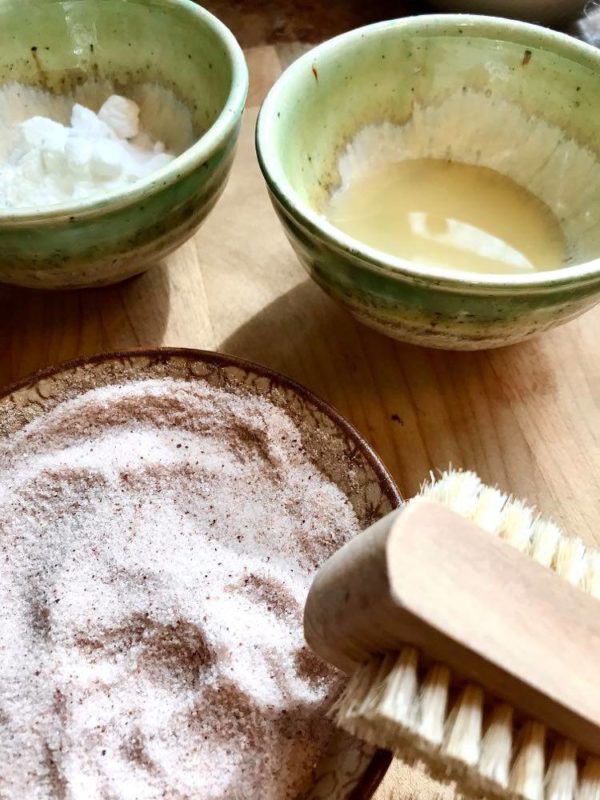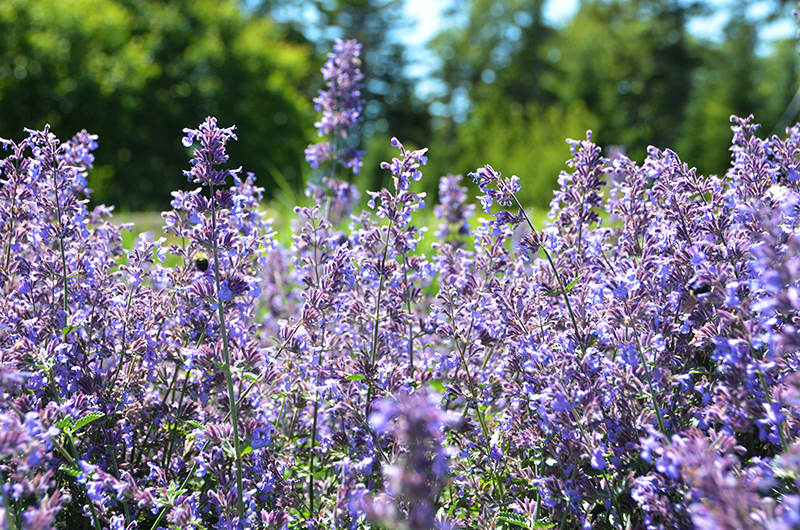As we spend more time at home these days, the speed at which dust and dirt accumulates is thrown into sharp relief—especially with windows open, wind blowing, and pollen dusting. If you’re anything like me, then a clean space opens the mind, relaxes the body, and makes spending so much time at home more rewarding.
Even those of us who normally eschew harsh chemicals have probably found ourselves reaching for them recently. However, in and around these more serious cleansing measures, we can reach back into nature for materials that clean and disinfect naturally. Let’s look at a few you might already have on hand.
 Distilled white vinegar is wicked cheap and a super, amazing cleanser. Yes, it’s a bit stinky, but that smell disappears via the magic of evaporation. Of course, you can always dilute it with water, essential oils, or lemon juice.
Distilled white vinegar is wicked cheap and a super, amazing cleanser. Yes, it’s a bit stinky, but that smell disappears via the magic of evaporation. Of course, you can always dilute it with water, essential oils, or lemon juice.
- Beneath the sinks in both my kitchen and bathroom, I always have a spray bottle of vinegar and water (half of one, half of the other). I usually add several drops of lemon, pine, peppermint, or rosemary essential oil, depending on mood and what I have on hand. I use this spray on EVERYTHING. (But, I discovered the hard way, the acid can damage stone, so don’t use it on granite or marble).
- But the power of vinegar? Amazing. It removes soap scum, mold, mildew, grease build-up, hard water stains, lime residue—I mean, the list goes on and on. It’s all about trial and error—start by dousing whatever you’re cleaning with the vinegar spray, then letting it sit for at least fifteen minutes (though I find up to an hour makes the work easier). I use this method in my toilet, sinks, tub, kitchen and bathroom floors, door handles, faucets, stove top… Really. There’s little vinegar can’t do. Added to your laundry, it even makes an all-natural fabric softener.
- I also use it as a fabulous fruit and veg soak. I fill my sink with cold water and a few tablespoons of vinegar. As soon as I’m home from the grocery store, I dump my produce in there and let it sit fifteen minutes. Then, a rinse with clean water, and you’ve got clean veg for the week.
Salt can be a good abrasive (hence the popularity of exfoliating salt scrubs!).
- Coarse salt, aside from de-icing steps and paths all winter, can scrub anything you’re not worried about scratching. You can add baking soda to whiten what you’re scrubbing, too. Another bit of wisdom taught to me by Mom is to soak stubborn stains out of pots and pans with a few tablespoons of salt in water. Simmer that for a few minutes, then scrub. Our cast-iron pans were always scrubbed with salt (not soap and water!).
Baking soda is an absolute staple in my cleaning arsenal. Most of us probably remember the days of placing an open box of baking soda in the fridge to freshen it, but its skills far surpass odor absorption!
- You know those magic erasers? Those mysterious cleaning products that work miracles on marks and stains? Baking soda can do the same thing—just sprinkle it on the stain, make a paste with a bit of water, and scrub. While you’re sprinkling, douse some on your carpets, scuff it in a bit, wait ten minutes, and vacuum.
- If the salt trick (above) doesn’t work with your pots and pans, try the same thing with baking soda. Let it soak, then clean. (And keep baking soda handy: speaking of the stove—did you know it can douse grease fires?)
- Added to laundry, baking soda can lift stains, dirt, and grease. You can also use your handy paste to remove stains from clothes, linens, and upholstery (test a small portion before using to make sure you don’t discolor your fabrics).
- Side note: baking soda, by the way, makes a really effective exfoliator for the face and scalp. Just make a paste and rub in gently, rinse with clean, cool water. I use this method once a week (any more than that and you risk drying out your skin).
Lemons, thanks to their antibacterial properties, are natural disinfectants.
- In my kitchen, I use a cut lemon to clean my wooden cutting boards. I just rub the boards with half a lemon, let them sit for 20 minutes, then rinse and air dry. (Bonus: on a sunny day, I let my boards dry in the sun for extra cleaning, bleaching, and disinfecting power).
- Like salt, I also use lemons when I (ahem) accidentally leave a pot on the stove too long and get that impossible-to-remove debris on the bottom. Lemon to the rescue—simply take your cut half of a lemon, dip it in salt, and scrub your pans. You can also use this on hard water stains in sinks and tubs. Best of all? You can compost your cleaning materials afterward!
- Lemons are marvels at removing lingering odors (my mom grinds leftover lemons in her garbage disposal to freshen it), but did you know they also have bleaching properties? (Anyone who was once a teenager lusting after sun-bleached hair probably knows this…). To capitalize on this quality, you can add up to a half cup lemon juice to your wash during the rinse cycle to brighten whites. I also squeeze lemon juice on my white cloth napkins before I toss them in the wash—it helps dissolve stubborn stains.
And there you have it! Four natural cleaners you may already have at your disposal. Enjoy your days at (your naturally clean) home!
~Amy Holt, Writer/Editor

